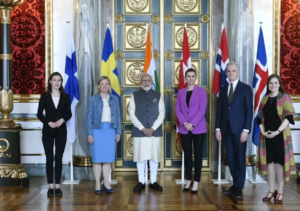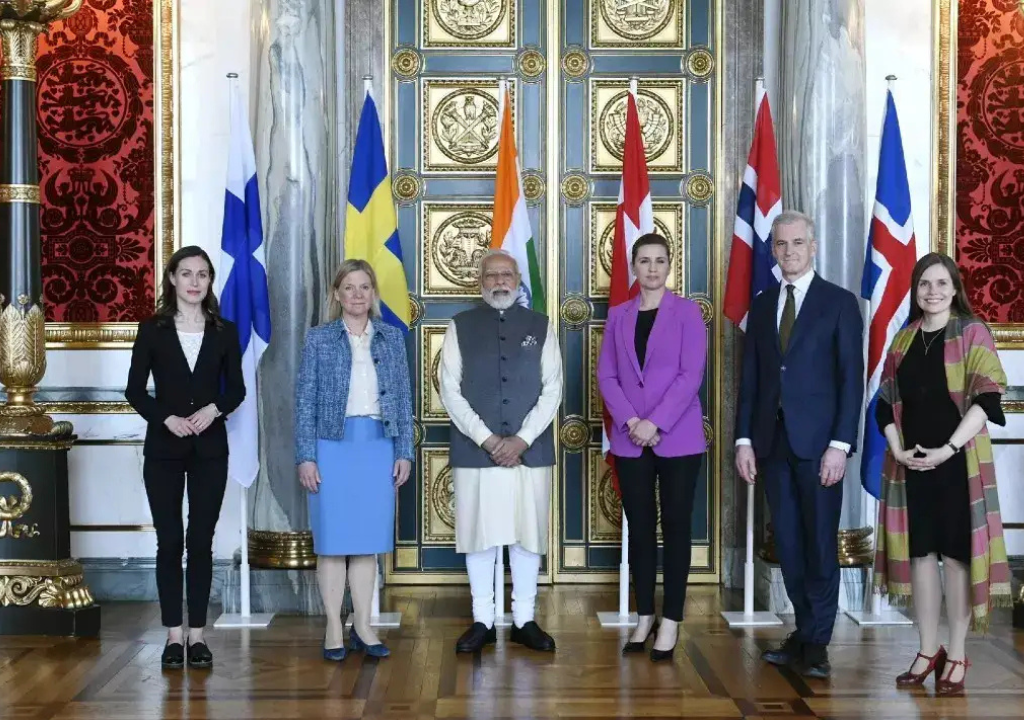PM Modi Europe Visit Postponed — In a significant development reflecting the shifting priorities of Indian diplomacy, Prime Minister Narendra Modi has postponed his three-nation Europe tour due to rapidly escalating tensions with Pakistan. The decision follows the brutal Pahalgam terror attack in Jammu and Kashmir, where 26 civilians, including tourists, lost their lives in an assault orchestrated by Pakistan-linked militants. In response, India conducted high-precision military strikes under Operation Sindoor, targeting terror camps across Pakistan and Pakistan-occupied Kashmir. The postponement underscores India’s firm national security stance and global message that combating terrorism cannot take a backseat to diplomacy.
Original Itinerary: Croatia, Norway, Netherlands
The original plan was for PM Modi to embark on a diplomatic visit to Croatia, Norway, and the Netherlands starting May 13, 2025. The centrepiece of the visit was to be the India-Nordic Summit in Oslo, scheduled for May 15 and 16, where leaders were expected to discuss areas like climate innovation, energy cooperation, and digital growth. However, as the situation at the border with Pakistan grew tense, the government officially communicated to the host nations the decision to postpone the visit. All three countries acknowledged the circumstances and extended their understanding and support to India.
Trigger: Pahalgam Terror Attack and Precision Strikes
The tipping point came on April 22, 2025, when a religiously motivated terror strike in Pahalgam, Jammu & Kashmir, claimed 26 lives. Within days, the Indian government gathered evidence linking the attack to Pakistan-based terrorist networks. After extensive deliberation and Cabinet Committee on Security meetings chaired by PM Modi, India launched Operation Sindoor — a swift, calibrated response involving precision missile strikes on nine terror bases across the border.
The strikes began at 1:05 AM on May 8 and lasted 25 minutes, targeting only terror infrastructure while deliberately avoiding Pakistani military or government facilities. This was a deliberate show of restraint aimed at signaling that India’s actions were defensive and surgical, not provocative. A government statement made the approach clear, stating that India had shown restraint in its target selection and method of execution, emphasizing that the operation was “focused, measured, and non-escalatory.”
PM Modi’s Immediate and Strategic Response
PM Modi’s decisiveness was evident early on. On the very day of the Pahalgam attack, he cut short his international engagement in Saudi Arabia and returned immediately to New Delhi to assess the situation. Following a high-level CCS meeting, India initiated diplomatic consultations with key global players, including members of the UN Security Council, to justify its impending actions and garner international support.
In another key decision reflecting India’s shift toward national security prioritization, PM Modi also cancelled his scheduled participation in Russia’s Victory Day celebrations in Moscow on May 9. These choices reflect the government’s focus on securing Indian lives and sending an unmistakable message that state-sponsored terrorism will not go unanswered.
Diplomatic and Military Significance
India’s response is being praised globally for its balance of strength and restraint. The military strikes were based on real-time intelligence and received full diplomatic clearance at the highest levels. By avoiding military assets and limiting the strikes to known terror hideouts, India ensured the action could not be misconstrued as an act of war.
This careful targeting showcased India’s desire to maintain peace while holding those accountable for the deaths of innocent civilians. The decision to postpone the Europe visit, rather than rushing into it amid heightened tensions, reinforces the image of a responsible nation prioritizing citizen safety over ceremonial diplomacy.

Global Reactions and Regional Implications
The cancellation of the PM Modi Europe Visit has not gone unnoticed in diplomatic circles. Countries like Norway, the Netherlands, and Croatia have expressed solidarity with India’s situation and respect for its decision. The international community, especially Western democracies, have shown a nuanced understanding—backing India’s right to defend itself while urging both nations to avoid escalation.
The now-postponed Europe visit was intended to strengthen strategic and trade ties across energy, clean tech, and digital cooperation. But current events have elevated national defence as India’s most pressing priority. The underlying message is clear: terrorism will not be allowed to derail peace without repercussions.
India’s Strategic Clarity
This move aligns with India’s evolving defence and diplomacy strategy, especially in the context of past retaliatory operations like the 2016 Uri surgical strikes and the 2019 Balakot airstrikes. The government’s actions reinforce a pattern — that India will not shy away from using calibrated military force when provoked. The postponement of the Europe visit reflects this larger doctrine — one where national security imperatives outweigh routine diplomatic agendas.
Operation Sindoor: Summary
Operation Sindoor, launched in the early hours of May 8, 2025, was India’s targeted response to the Pahalgam massacre. Over 24 missiles were launched at nine known terror locations in Pakistan and POK, with the operation lasting just under half an hour. The government confirmed that the sole focus was the elimination of cross-border terror infrastructure, and not the provocation of wider conflict. No civilian or military targets were hit, and this precision further underlined India’s intent to act without escalating.
Looking Ahead
The PM Modi Europe Visit is expected to be rescheduled once the situation on the western border stabilizes. The Ministry of External Affairs is already in consultation with the affected nations to identify new dates. Meanwhile, India will continue its diplomatic outreach to build international consensus against terrorism and exert diplomatic pressure on Pakistan to dismantle terror safe havens.
While the postponed visit delays economic discussions and trade engagement with Europe, it also establishes India’s image as a nation that places national interest above all else. The world is watching closely as India navigates this tense period with firmness, strategy, and composure.
Conclusion
The PM Modi Europe Visit Postponed is not merely a scheduling change but a strategic statement. At a time when terrorism once again claimed innocent Indian lives, India responded with surgical strikes, global messaging, and diplomatic maturity. PM Modi’s decision to remain in India and steer the nation through this crisis reinforces the government’s commitment to security, accountability, and sovereignty. As India continues to walk the tightrope between diplomacy and defence, it reaffirms that peace must not be mistaken for weakness, and restraint must not be mistaken for inaction.

